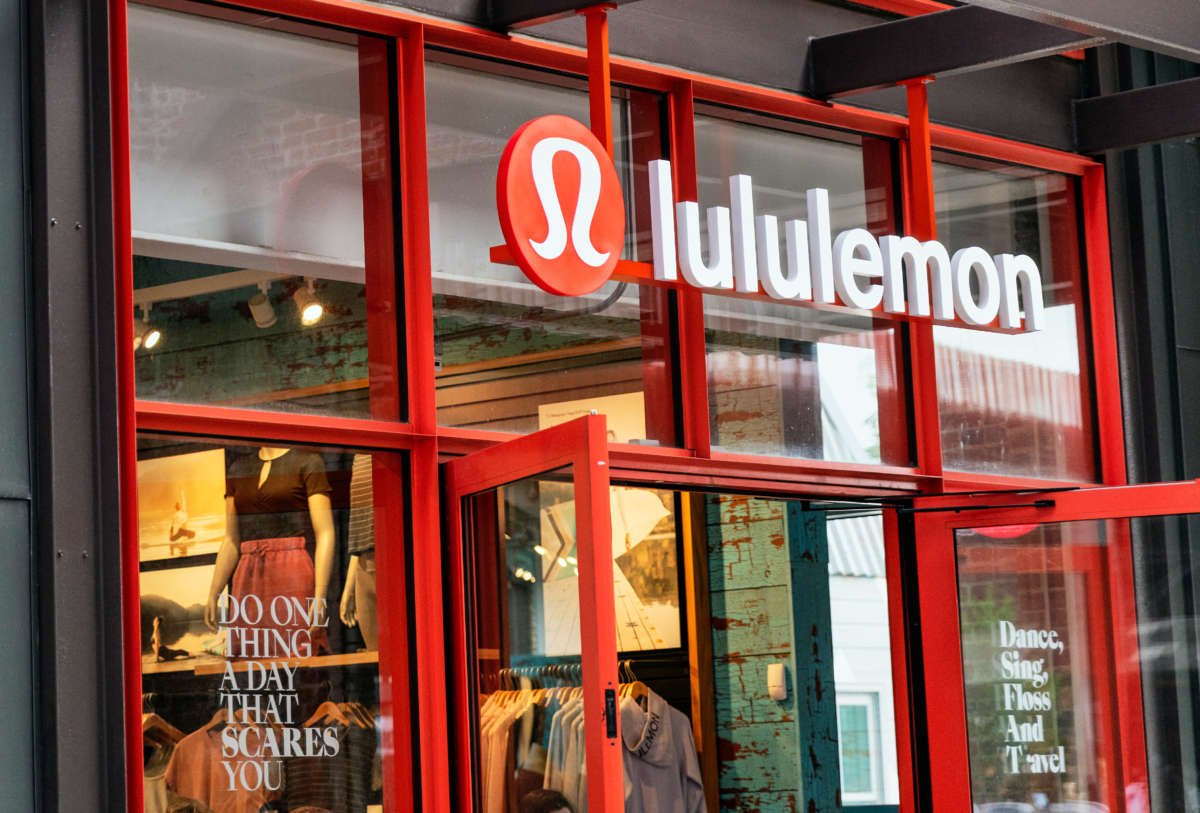Workers for athleisure company Lululemon Athletica in Washington, D.C., have filed to unionize, seeking to become the first of the company’s 315 U.S. locations to form a union.
On Wednesday, workers filed for a union election with the National Labor Relations Board (NLRB) to cover the 33-person unit, as first reported by Bloomberg. According to the NLRB filing, they are filing under the name of the “Association of Concerted Educators.” This is likely due to the fact that workers in sales positions in Lululemon’s brick and mortar stores are referred to as “educators” by the company.
On the union’s Twitter, the Georgetown workers say that the company’s stated “core values,” including things like entrepreneurship, honesty, courage, connection and inclusion, are part of what inspired them to organize.
“We are courageous, we are demanding more,” the union wrote. “More collaboration. More transparency. More pay transparency. More equitable pay structures.”
“We show up ready to truly connect with our guests and truly create fun and memorable experience [sic]. We seek to uphold our value of inclusion in everything we do,” the union continued. “These are the reasons we are collectively saying: Recognize our union.”
Lululemon workers at all levels of the company have reported having to work under abusive conditions in recent years. Workers in their brick and mortar stores have said that there is a “cultlike” culture of “toxic positivity” within the company, despite the fact that the company touts being inclusive. Workers are paid $15 or $17 an hour, depending on the area, after the company announced a pay bump because they were struggling to maintain staffing.
One worker told Insider in 2021 that, partially because the company’s corporate staff was largely white and able-bodied, non-white workers often felt subjugated or left out. One Asian American worker who formerly worked in a Minnesota location said that her manager would sometimes insinuate that the non-white workers at the store weren’t as enthusiastic as their white counterparts. Lululemon has denied these claims.
Workers at other levels of the company have also reported abusive working conditions. In 2019, workers in Bangladesh reported being verbally and physically abused by management for breaking rules while only being paid about $86 a month — less than the cost of a typical pair of leggings from the brand. The company said that it was investigating the allegations after they were uncovered by The Guardian, but it’s unclear if any changes have come out of that investigation.
Meanwhile, the company’s corporate culture has also been problematic. In 2018, Racked reported that the company’s outgoing CEO Laurent Potdevin had fostered a “boy’s club” culture at the company; some workers said that only men or Potdevin’s favorite employees were able to move up in the company.
If the Georgetown workers succeed in forming a union, it would be another success in a wave of retail unionizations that have swept the country over the past months.
Workers at companies like Starbucks have had enormous success unionizing and growing their movement across the country, and the momentum doesn’t seem to be fizzling out any time soon. Another retail union, Trader Joe’s United, has marked a small win this week as a second store that’s filed to unionize with the group has received a union date. The Minneapolis workers will vote next month to unionize, while the Hadley, Massachusetts, workers will be voting next week.
Join us in defending the truth before it’s too late
The future of independent journalism is uncertain, and the consequences of losing it are too grave to ignore. To ensure Truthout remains safe, strong, and free, we need to raise $50,000 in the next 10 days. Every dollar raised goes directly toward the costs of producing news you can trust.
Please give what you can — because by supporting us with a tax-deductible donation, you’re not just preserving a source of news, you’re helping to safeguard what’s left of our democracy.
